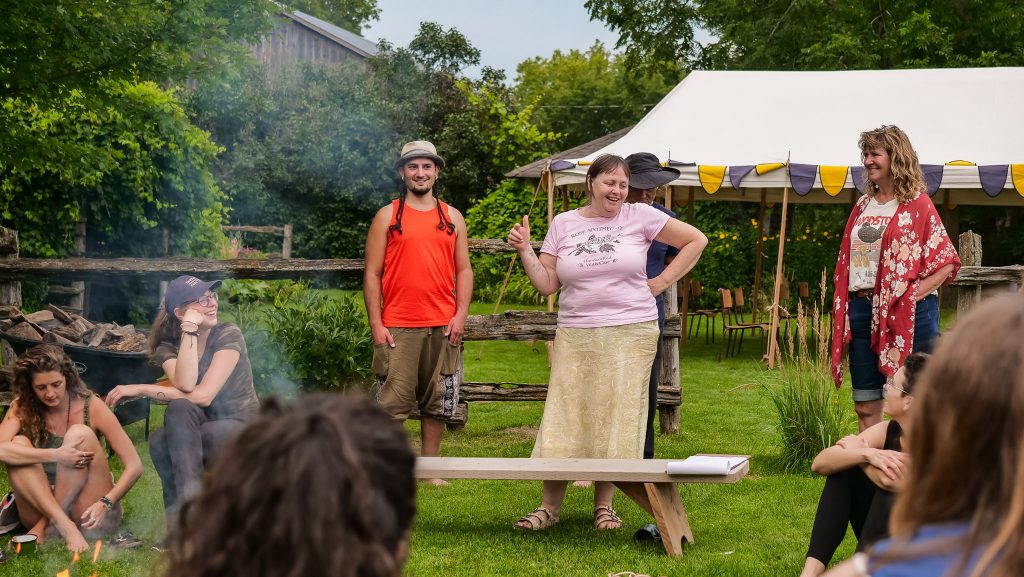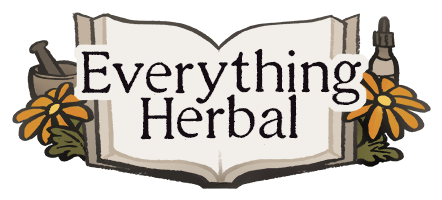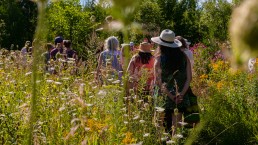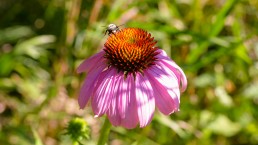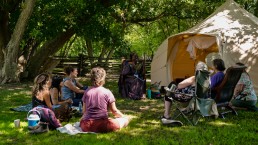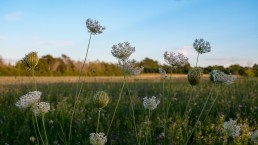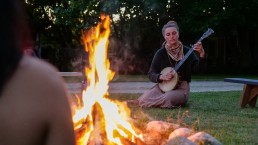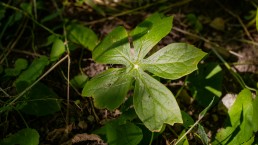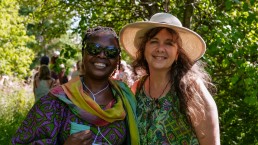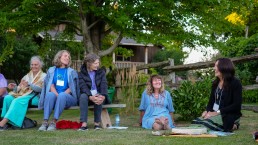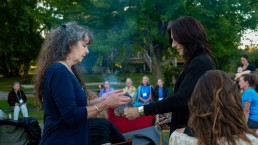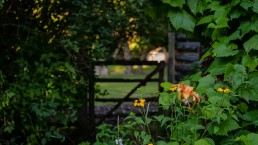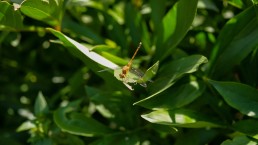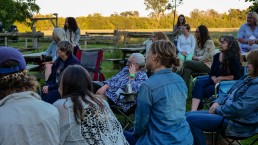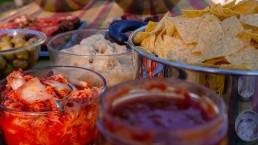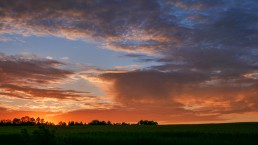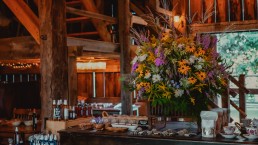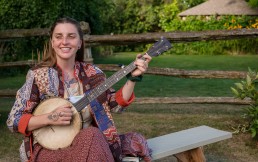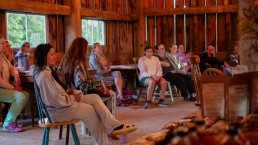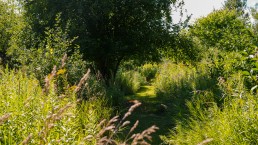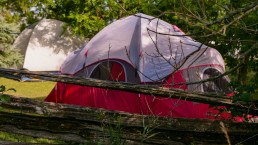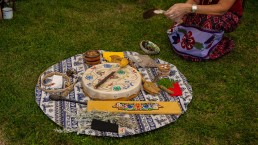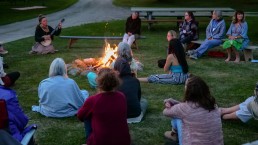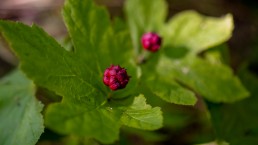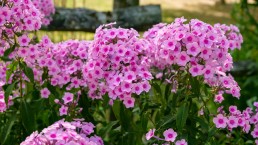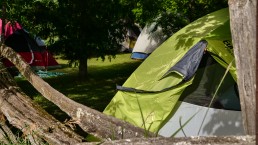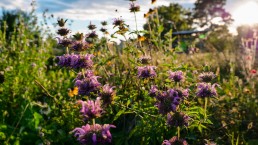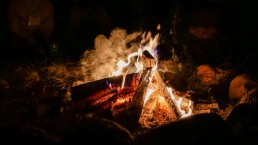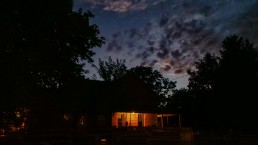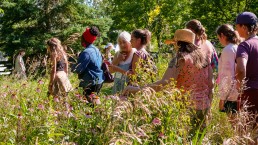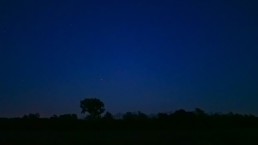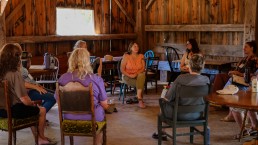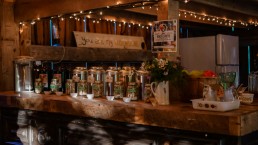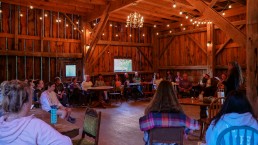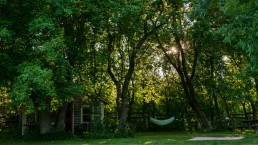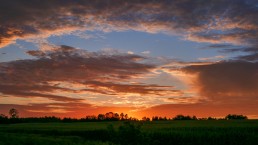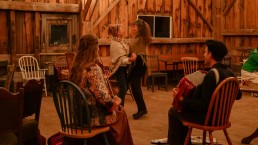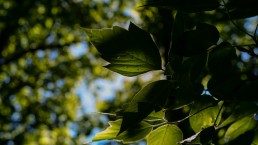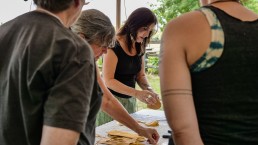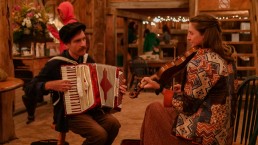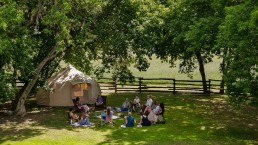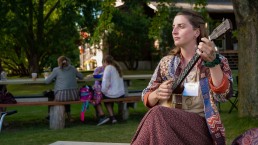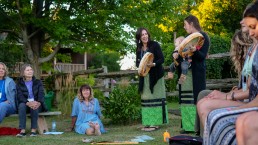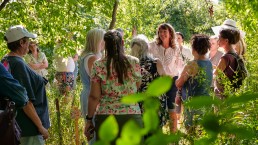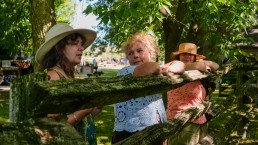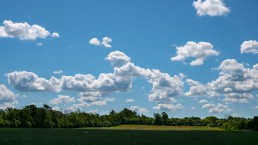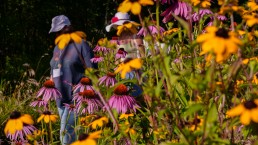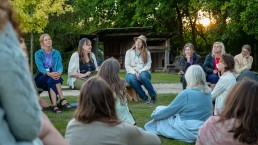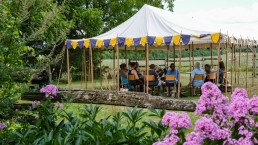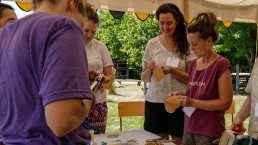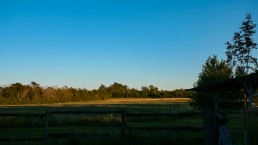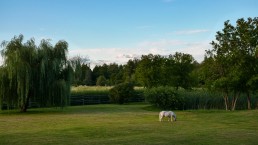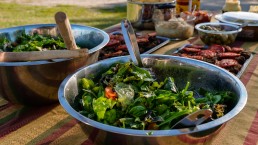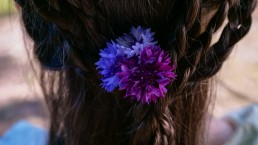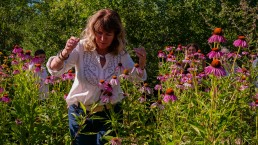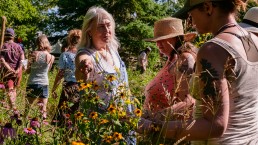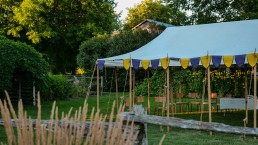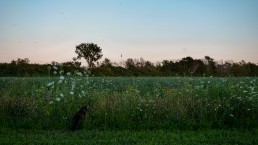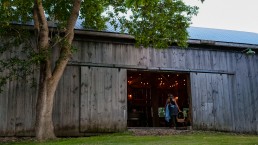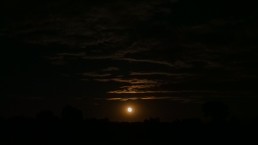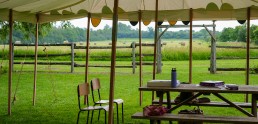Lady Slipper: A Gathering of Women and Plants
A Magical August Weekend…
So often we think of plant medicine as medicine for fixing and working on ourselves! But at Lady Slipper, the plants offered the medicine of connection, acceptance and appreciation.
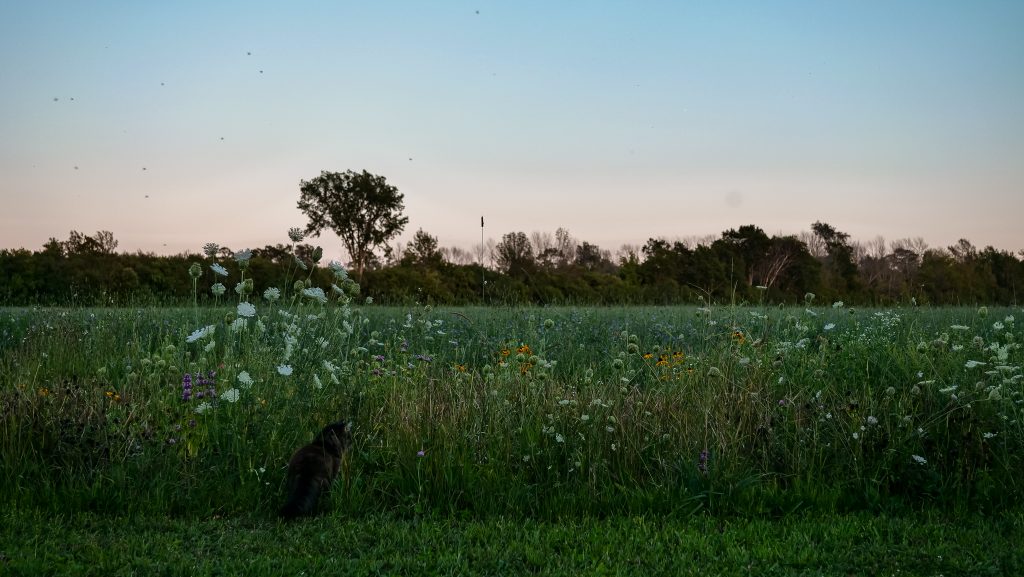
It was a beautiful weekend. The days were warm and sunny with a caressing breeze. The nights were bathed in the light of the waxing moon. The women came together to sing, laugh, share wisdom their bodies, plants and their hearts carry. The plants rejoiced in being seen and honoured. The food was delicious and nourishing. It was a beautiful weekend.
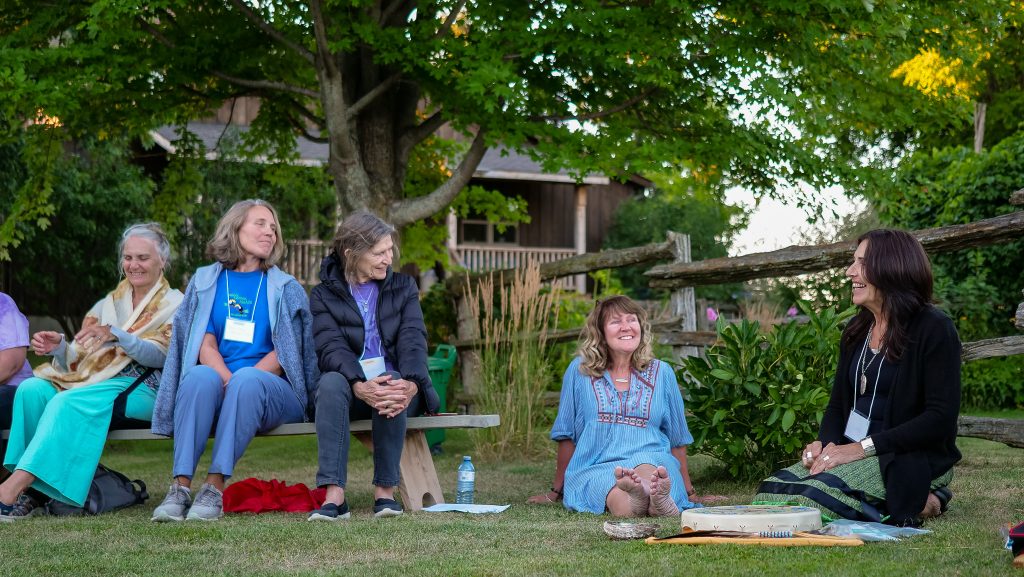
A gathering of women is a special time. It is a time to become more than a mother, wife, daughter, sister. It is a time to walk with the unique beauty each woman brings to the world. It is a time to swear like women swear, weep like women weep and talk like women talk. There was lots of talking and listening.
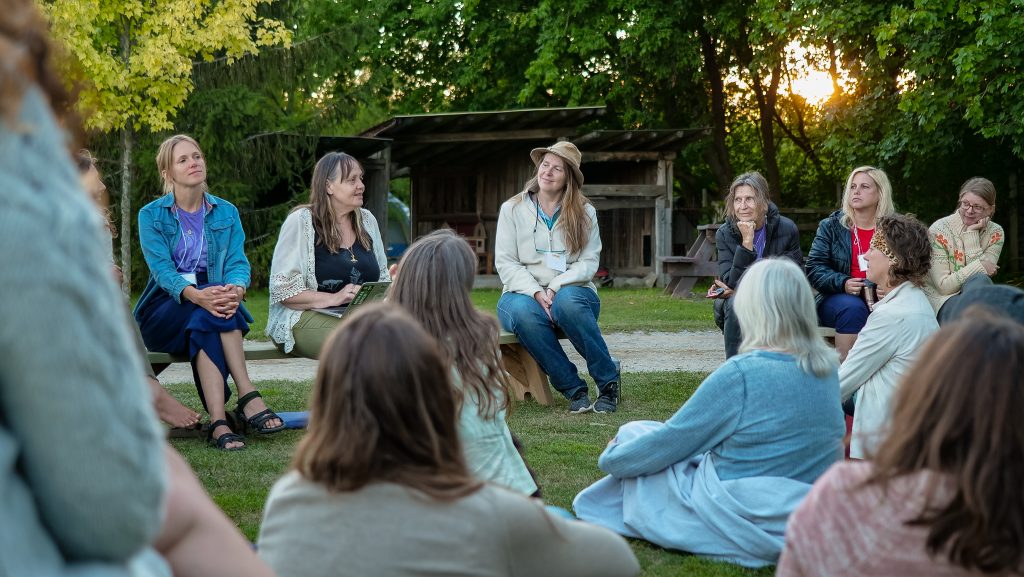
I remember walking by a picnic table where a group of women sat and overheard Laura Gilmore, a woman comfortable in the wilderness of the forest, explain how wolves move through the wilderness and porcupines perch in trees with their back to the world. The women at the table listened intently absorbing the knowledge of wild things.
Then there was Christine Denis’ erotic monograph of the Lady Slipper. With the lights twinkling behind her, Christine reclaimed dirty words used to describe female genitalia. In reclaiming these words, Christine banished the shame each women has been made to feel and returned the power and beauty of the female anatomy.
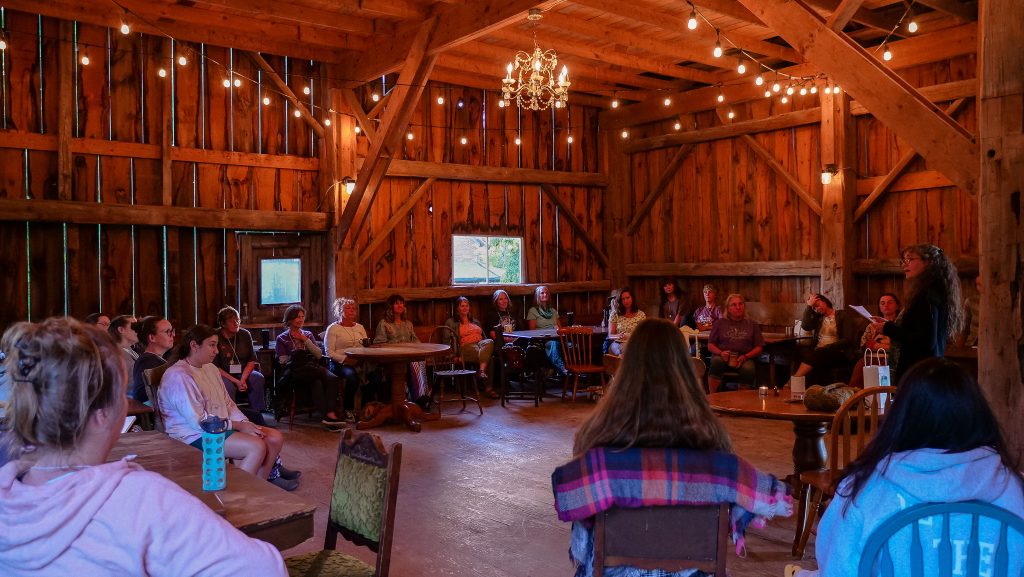
Penny Beaudrow in the meantime, created a safe place for women to connect with the earth. Laying on the ground, each women opened her heart to abundance of life with all its gifts and trials.
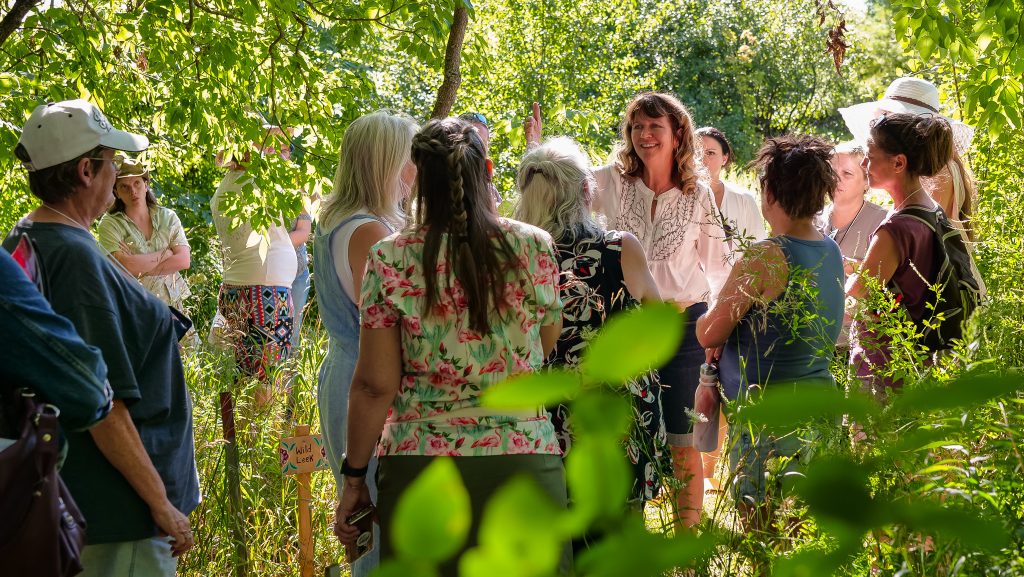
Lauri Hoeg offered each women an opportunity to name the medicine they are gifted. She showed them how to make a small pouch to help them remember the medicine they carry.
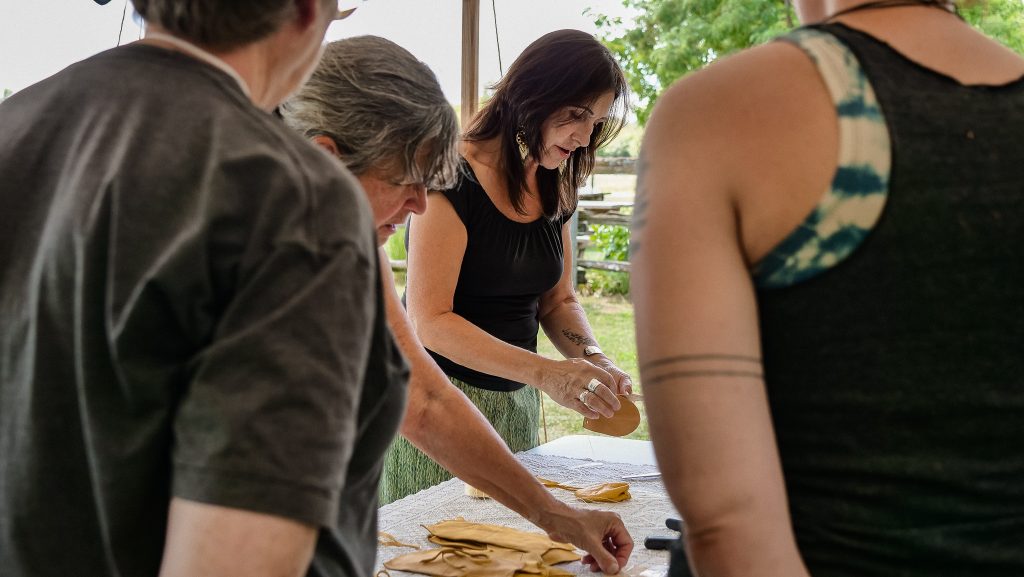
Mama, unfortunately I was not able to sit with her during her sharing. But, all weekend long we felt Mama’s joy and support. The open acceptance and interest in others was a palpable experience throughout the weekend.
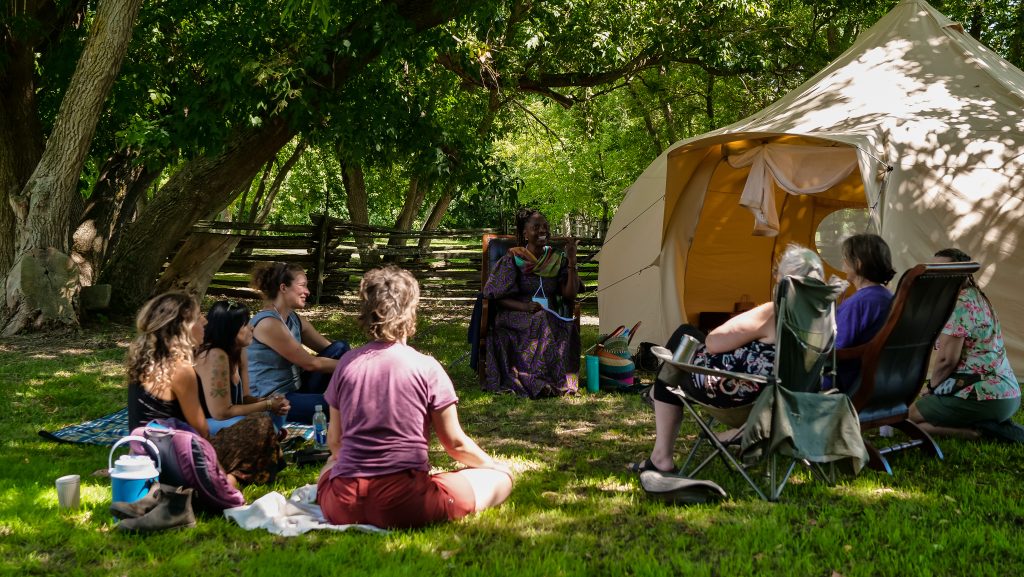
Dayna carried us through the weekend with her beautiful music, and in the background our volunteers, Evelyn, Chelsea, Candice, Charlee, Serena, Red, Debbie and the talented hair braider Rachel, tended to all that needed to be done. Without their efforts, Lady Slipper would not have seemed so easeful and carefree.
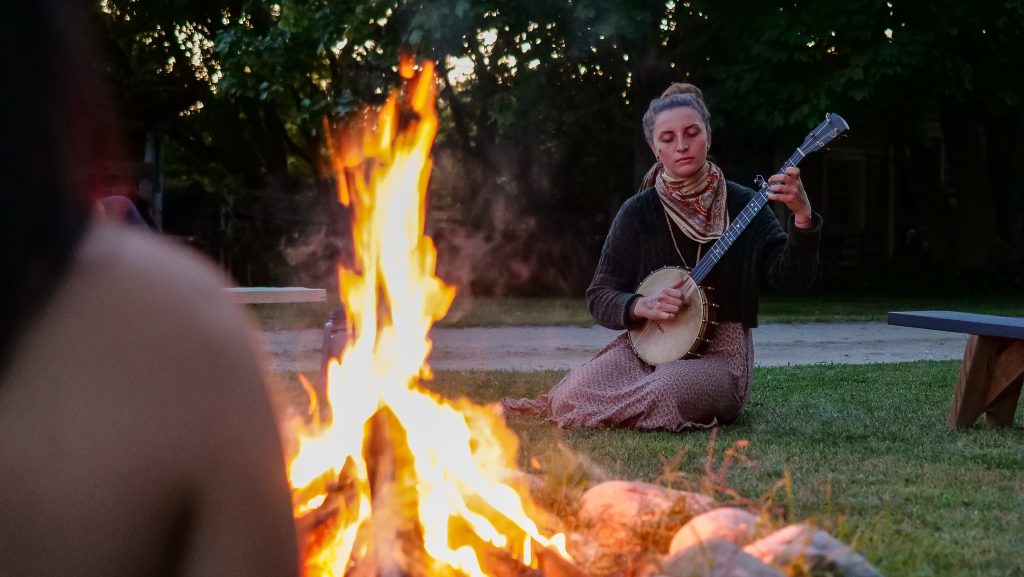
Penny and I want to thank all the women who came and helped make Lady Slipper the beautiful weekend it was. Your smiles, laughter, interest in plants and kind words, brought the true medicine to the gathering. Again, thank you.
Yours, Abrah
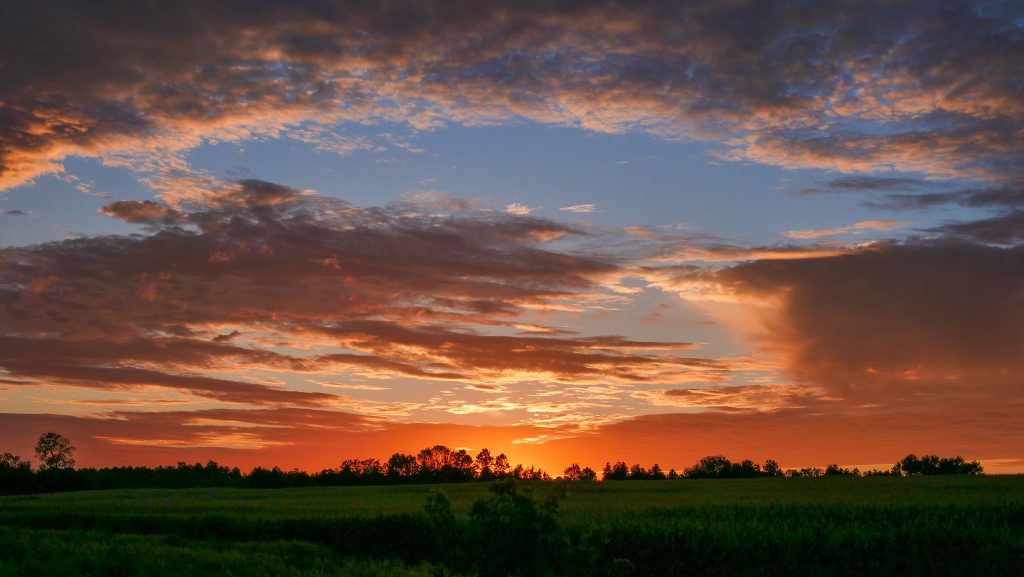
Photos by Serena Mor
Herbal Education and the Medicine of Experience
Reflections on Herb Camp and the Meaning of Being “With It.”
After a long period of social isolation, we were finally able gather under the banner of ‘Herb Camp’ – the first event of its kind in Ontario, a herbal gathering with a strong focus on teaching clinical skills to budding herbalists and herbal enthusiasts from many different walks of life. Students who were at different stages in their herbal education attended the event, and there was a strong feeling of conviviality amongst the group along with a real eagerness and willingness to share and to learn.
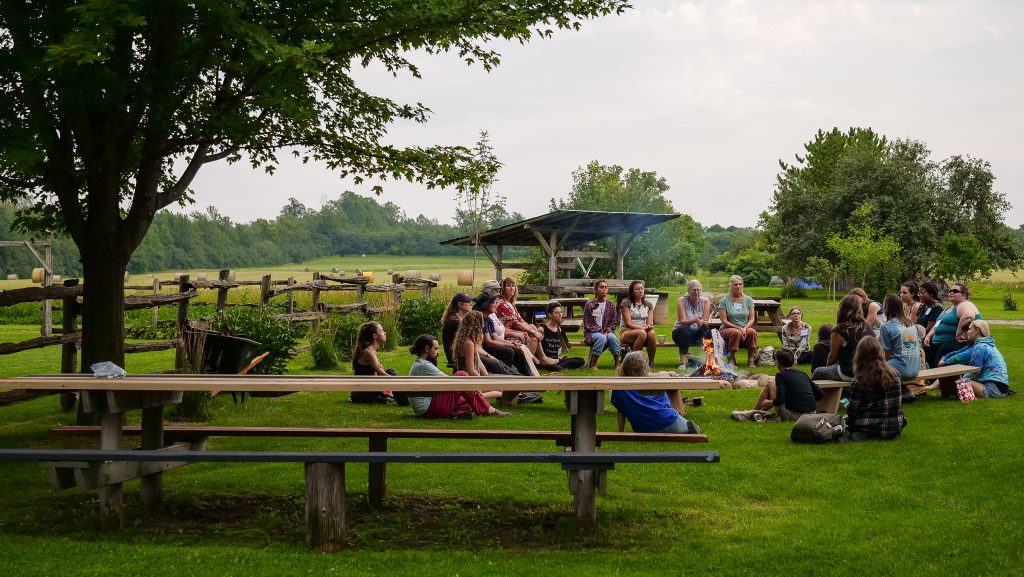
One of the things that Herb Camp really illuminated and affirmed for many of us was just how universally applicable and relevant herbal medicine is – it can be approached from wherever you are in your life, and applied in a variety of different ways, contexts, and circumstances. Some of the students were keen on learning basic skills and tips to practice herbal self and family care, while others were on the path to becoming clinicians, focused on learning how to treat serious pathology through the use of plant medicines. And it is not despite, but because of these differences in orientation, that Herb Camp was marked by a mutual enhancement of experience and insight. The teachings that are received from the plant world are simultaneously personal and universal in their scope and range of applicability. Arguably the most important quality of an herbal student and teacher alike is the ability to embrace the dimensions of experience that the plant world opens up for you, being willing to learn to follow the plants where they want to take you. Herbal medicine is a medicine of relationship and experience – of the profoundly personal and the timelessly universal.
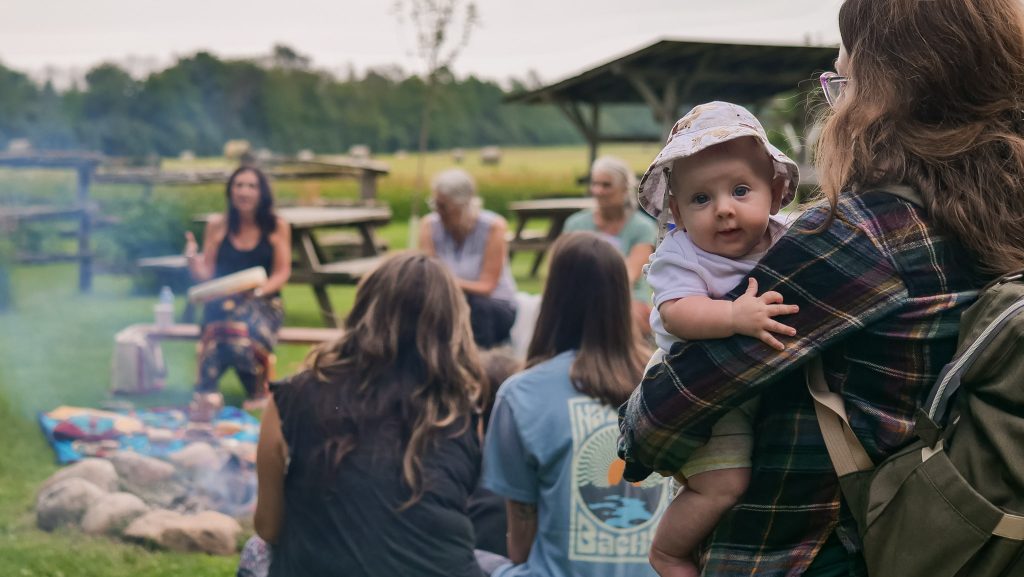
Like all of the true healing arts and sciences, there is an element of transmission that must take place when it comes to herbal education. There is clearly an essential place for facts, for textbooks, for lists and data, for lab reports and clinical trials in the training and upbringing of an herbalist. But there is an element of direct, personal experience that must also be present if an herbalist is to really come into their own. This can only happen in the flesh, tête-à-tête. The experience of working directly with the plants cannot be underestimated. An herbalist must, of course, learn to deeply see the plants that they use, to experience their medicine (the plants are more than dried material that shows up on your doorstep in plastic bags!). When you get to know an herb in person, that herb transmits some of its medicine to you, medicine that you can then carry within yourself as a gift and as a responsibility. The shift may be subtle at first, but in time, if that gift is properly nurtured, there is no going back. Before your know it, you realize that your perception of the world has been indelibly marked by all that the plants have given of themselves. It then becomes incumbent upon you to learn how to give back. With every act of transmission there comes a new facet or dimension of knowing and of sharing.
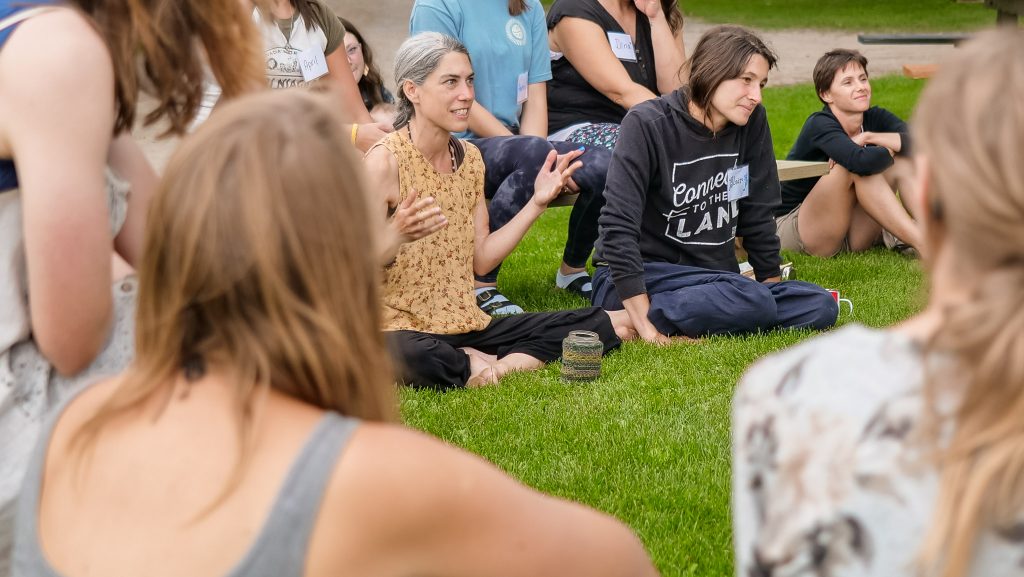
There is also the importance of direct and immediate participation when it comes to herbal education. This means in person, direct contact with a teacher and with fellow students. The same can be said of learning in general, as the great philosopher of education and social critic Ivan Illich once pointed out:
“Most learning is not the result of instruction. It is rather the result of unhampered participation in a meaningful setting. Most people learn best by being “with it,” yet school makes them identify their personal, cognitive growth with elaborate planning and manipulation.”
Our most lasting and significant memories of learning (and of teaching) are always tied to particular people and to specific places. Learning is embodied activity, and not a purely mechanical or cognitive exercise. After not having had any opportunities to gather in person for over a year, this fact really did hit home for the attendees at Herb Camp, teachers and students alike. It is shared participation and exchange in a meaningful setting that allows for deep-seated growth and development to take place. And when it comes to training in herbal medicine, this being “with it”, as Illich calls it, cannot be left out of the equation. We are, as herbalists, working with people after all, and we cannot learn to work with people who come to us in need if we do not learn how to be with others in the fullest and deepest sense of that word.
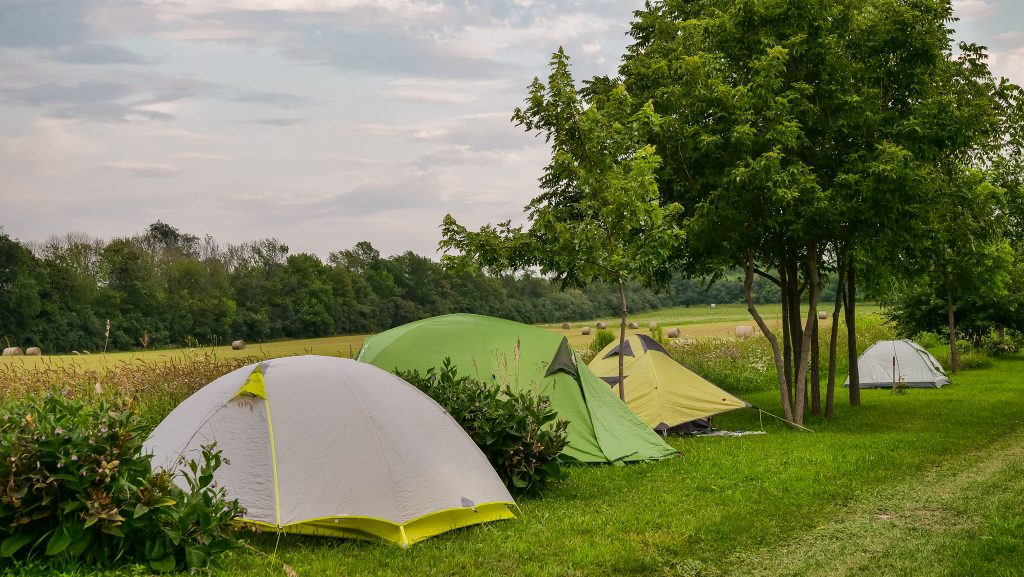
There is something truly therapeutic about being with others, as every therapist and medical practitioner, irrespective of their training or orientation, will tell you. Healing is a process that often takes place in the depths of the self, but the self is always already being with. Part of the significance of multi-day educational gatherings is that they allow us the time and space to step outside of our habitual routines and to really be with others, to talk and share jokes and meals as well as to explore involved and complex insights and ideas. Intimacy and conviviality is a crucial part of what differentiates a true learning environment from an impersonal place of instruction. When we allow ourselves to be with others in this way, we are engaging in an act of self-care. Education should be healing, for in learning we are given the opportunity to tend to ourselves, and to come back to ourselves anew. And as Illich reminds us, if we do not learn how to take care of ourselves, and cherish the opportunity to do so, then we cannot hope to be effective when it comes to taking care of others:
“Effective health care depends on self-care; this fact is currently heralded as if it were a discovery.”
Herbal medicine has known this all along. Herbal medicine is intimate. It is as much about the path that took you to the place where you are today as it is about the here and now. It is about the care of the self as much as it is about the care of others, and of the earth itself. Herbal medicine is not concerned with the production of medicine as a commodity, but with the propagation of medicine as relationship and experience. There is no better way to learn this medicine than being with others.
